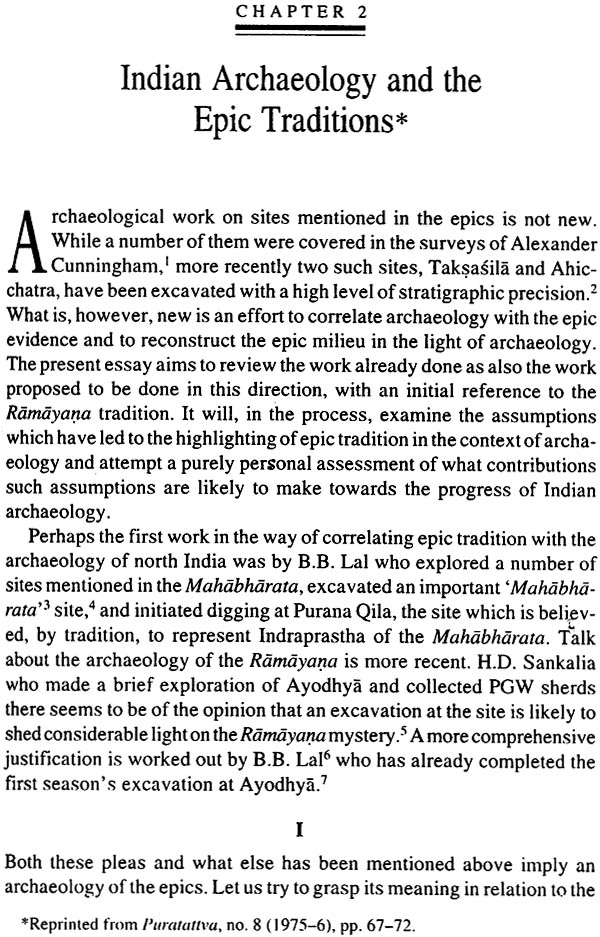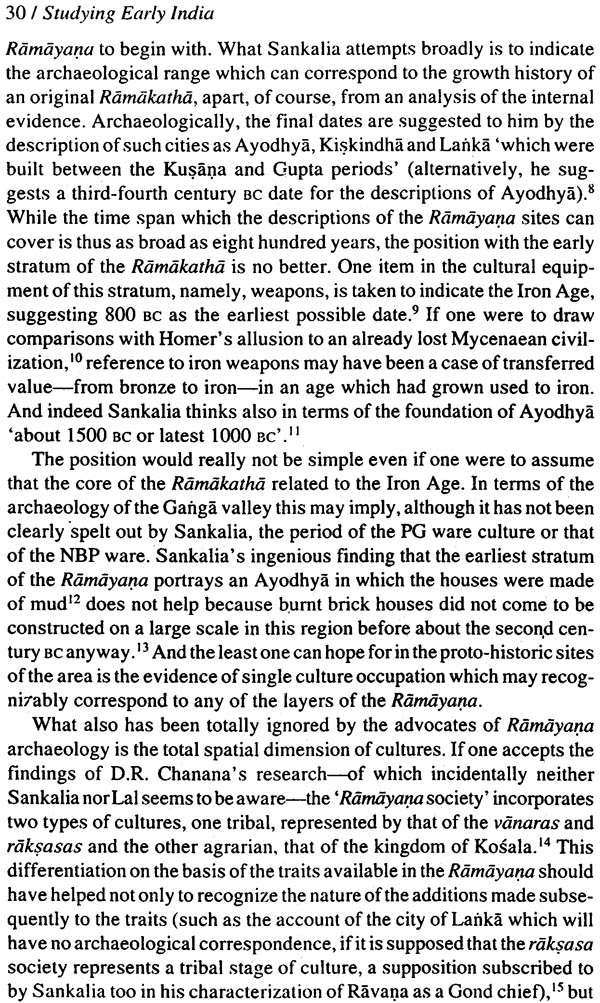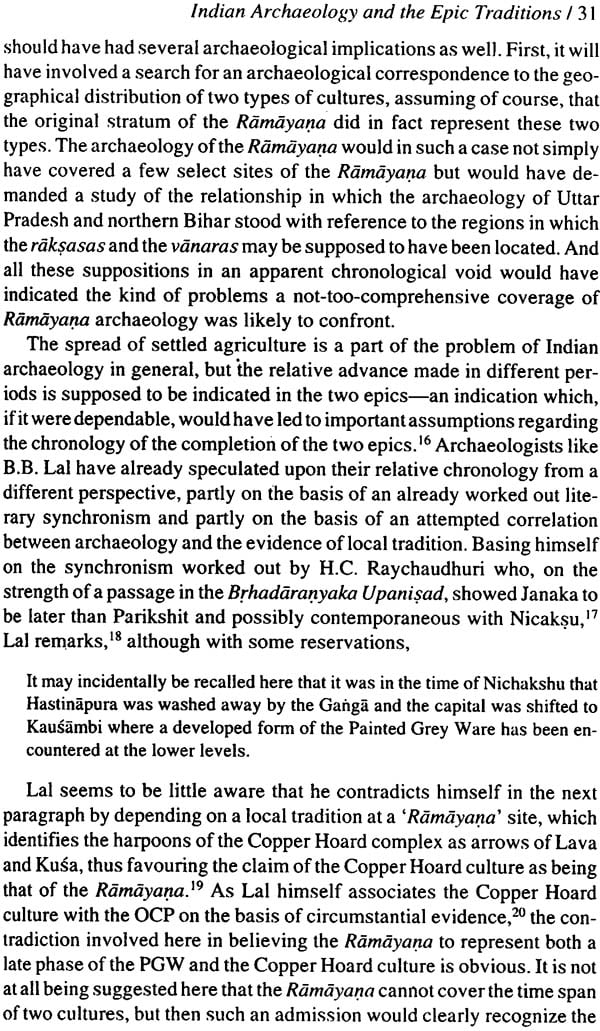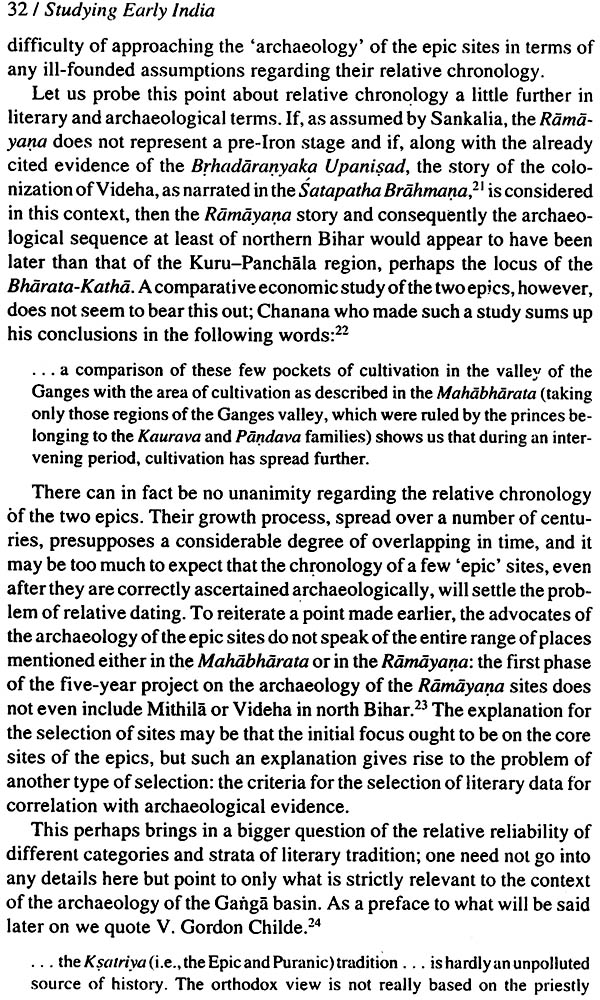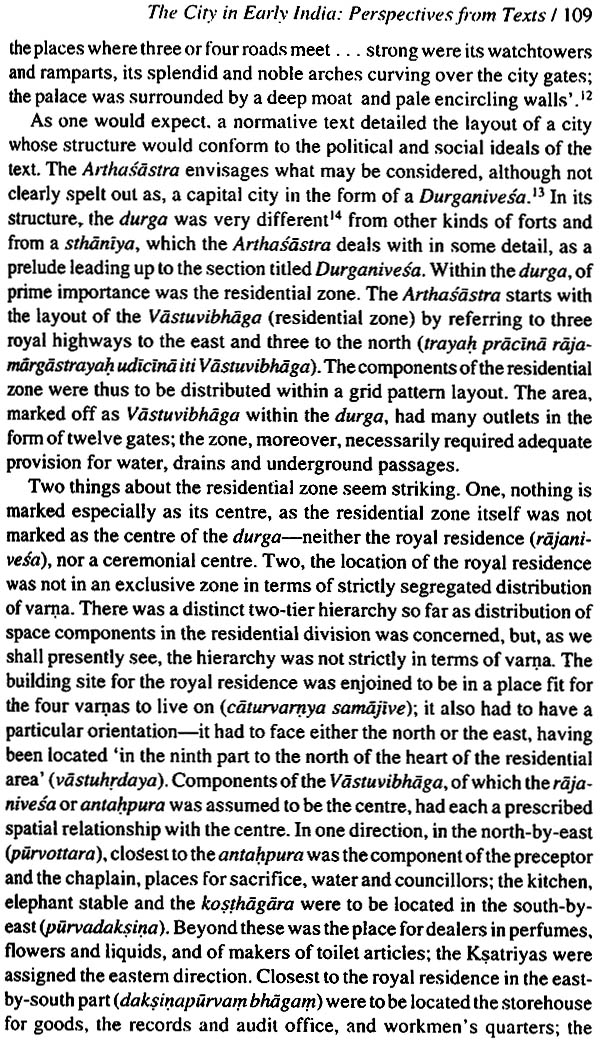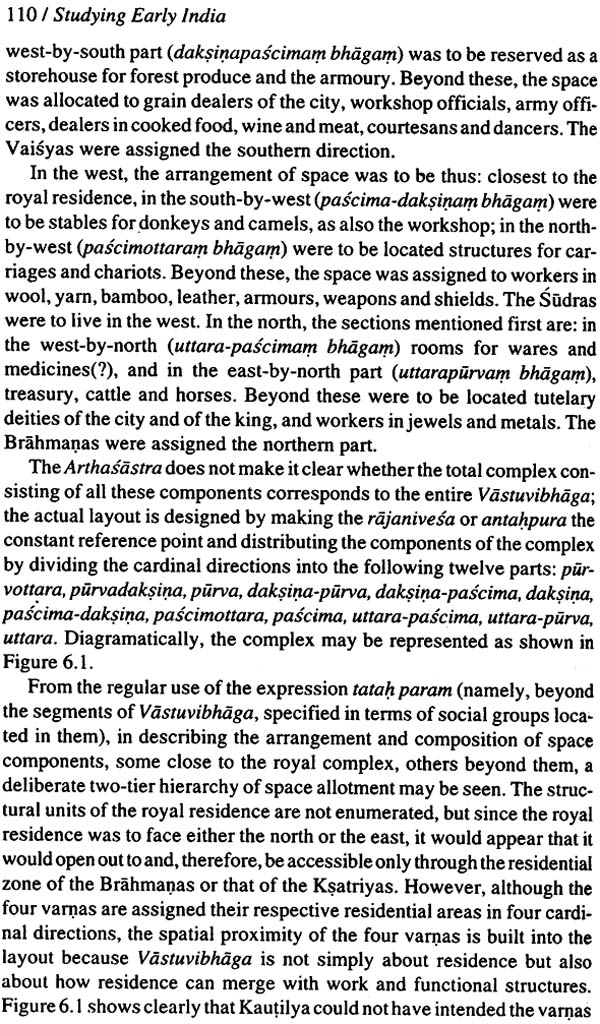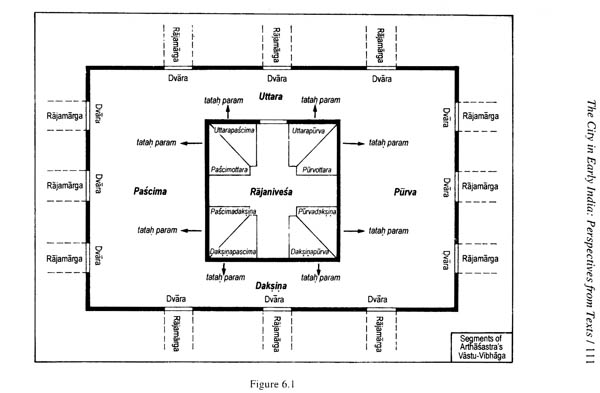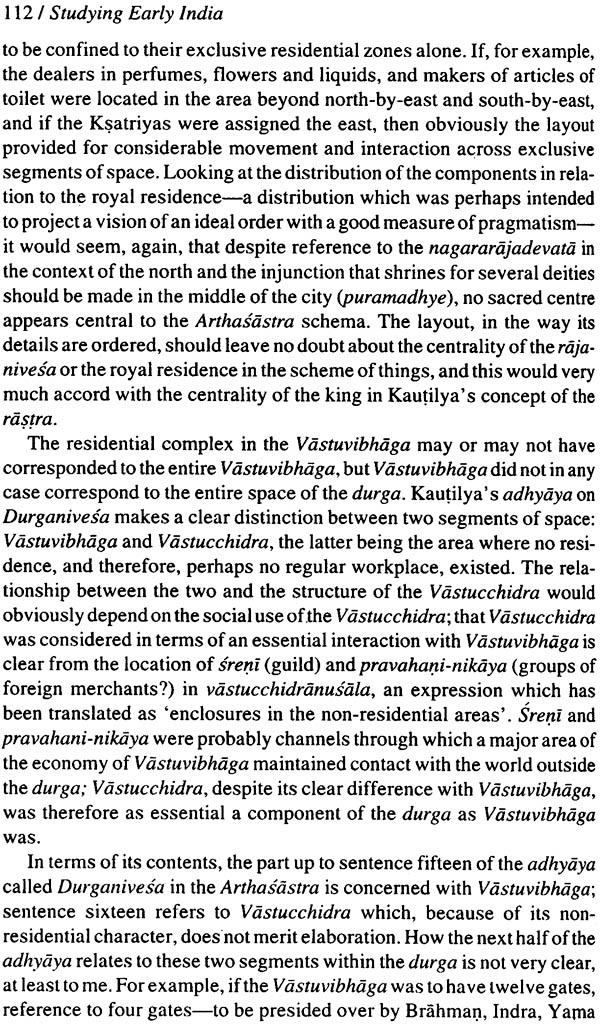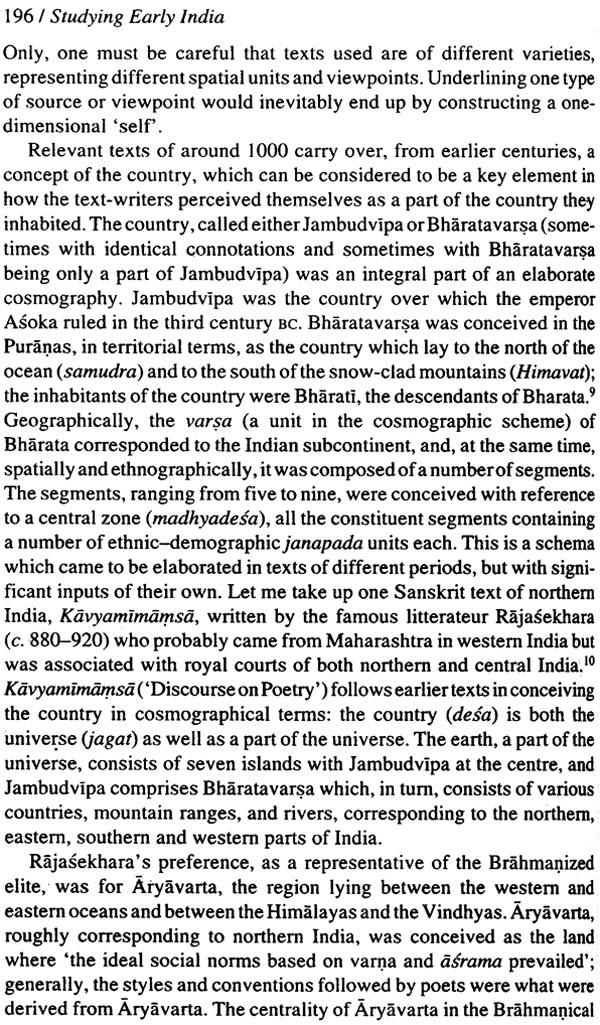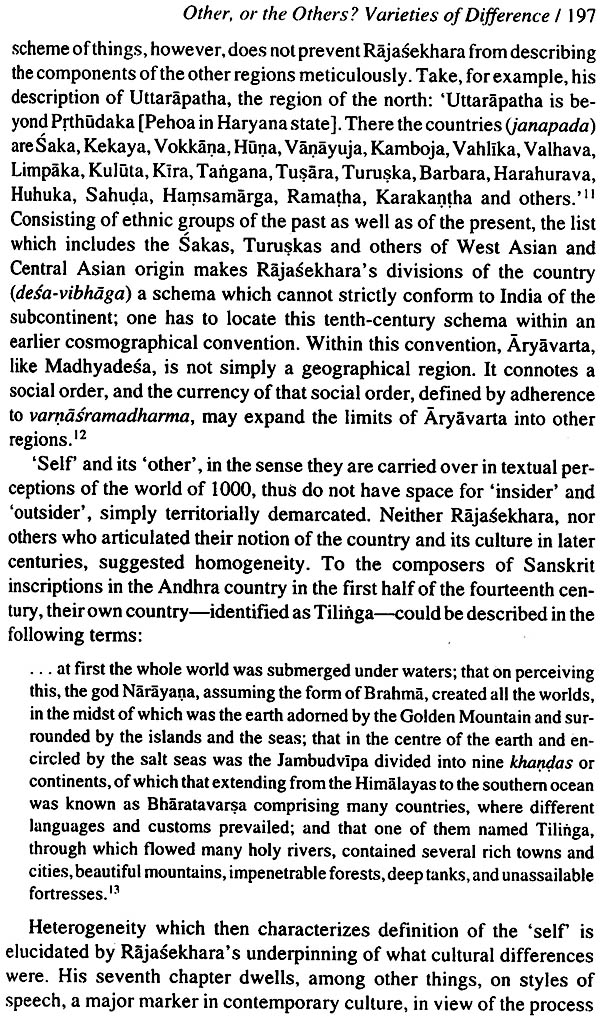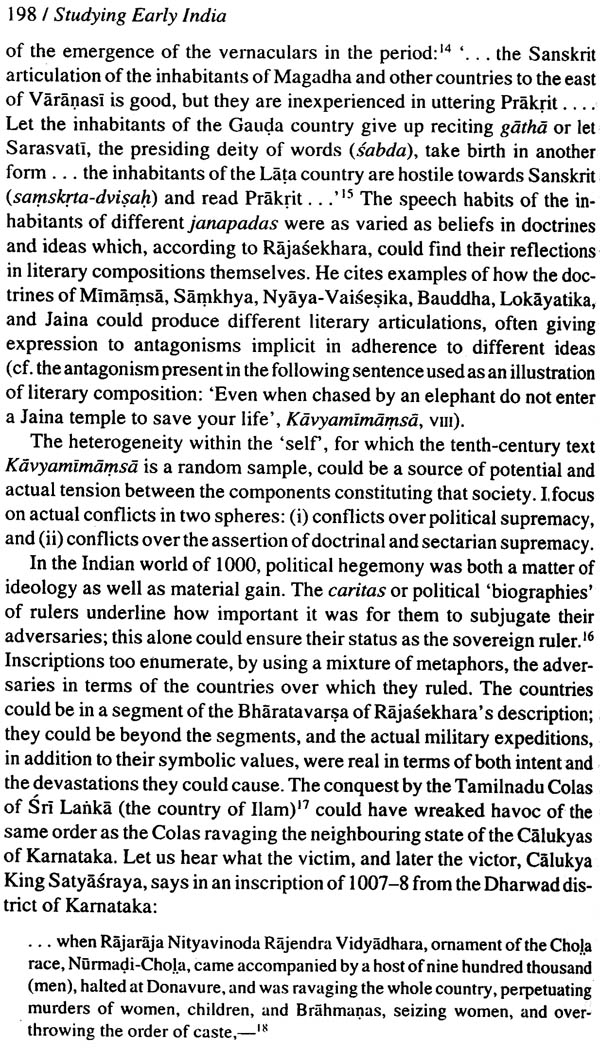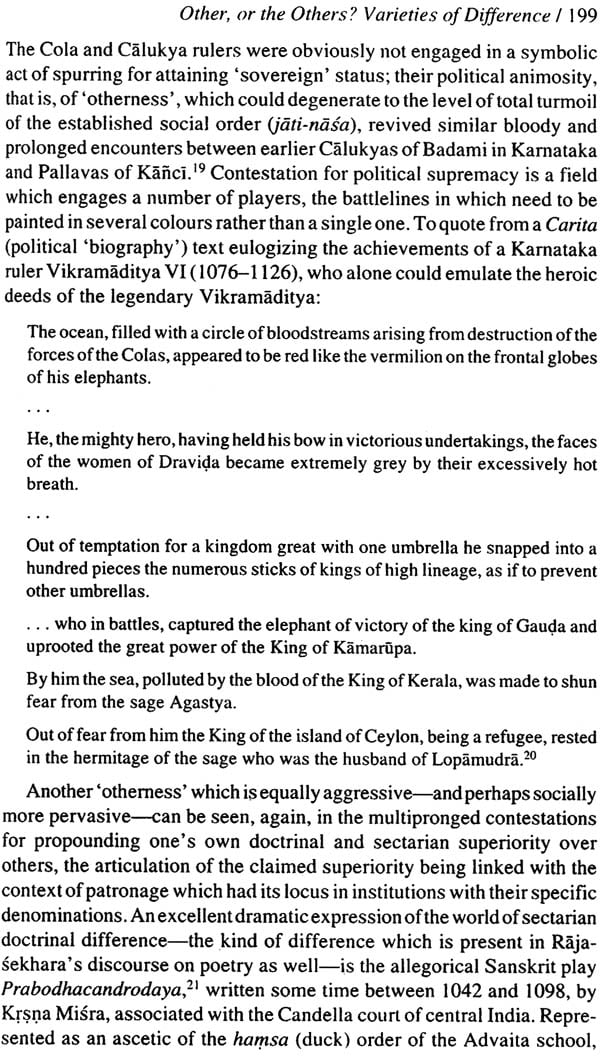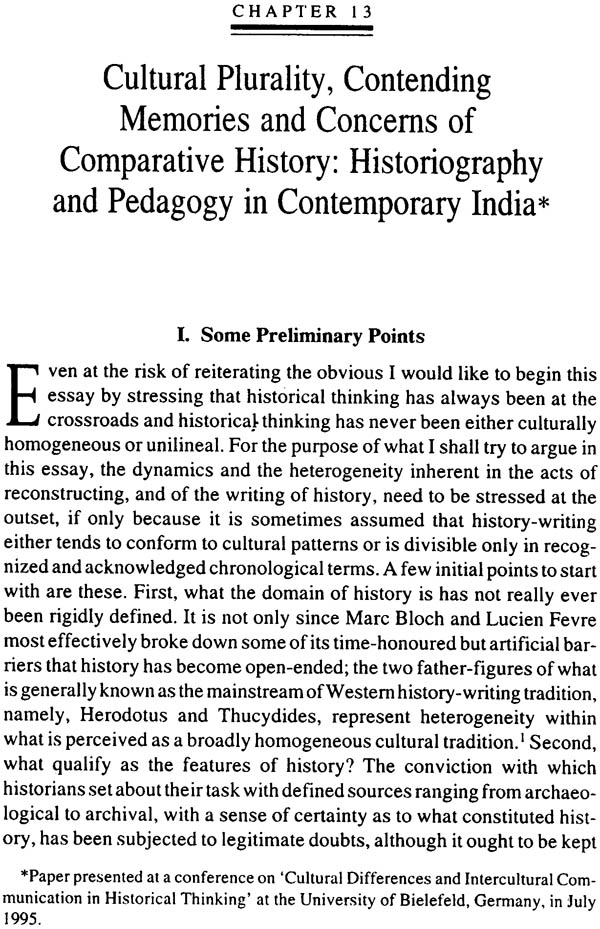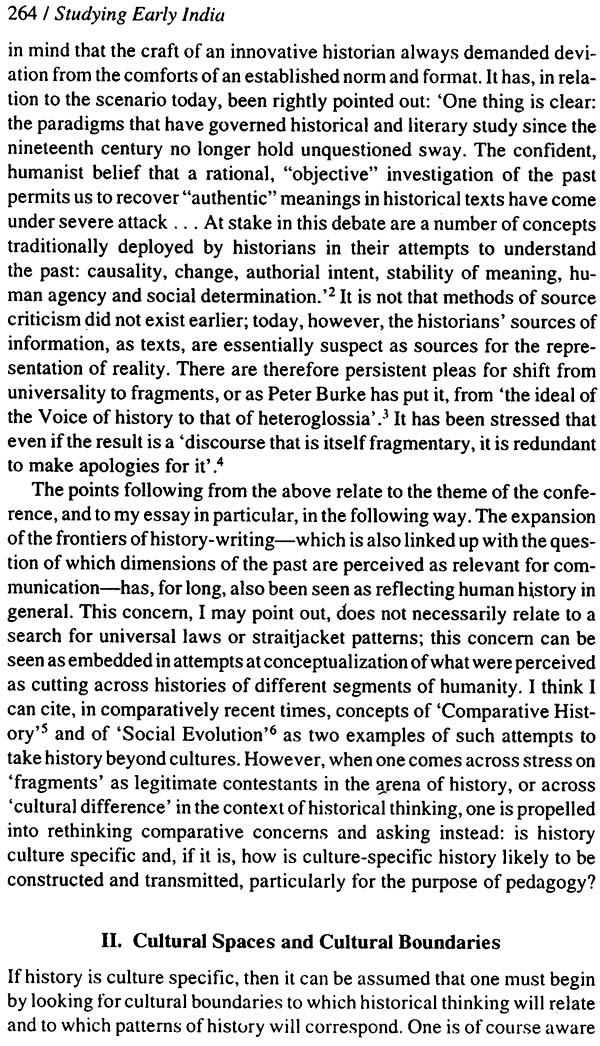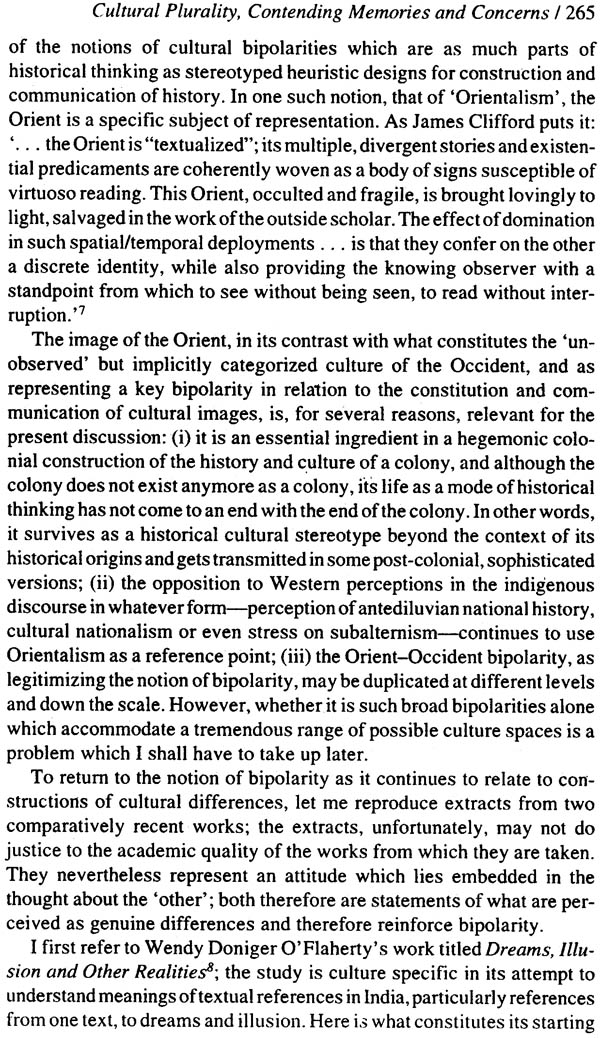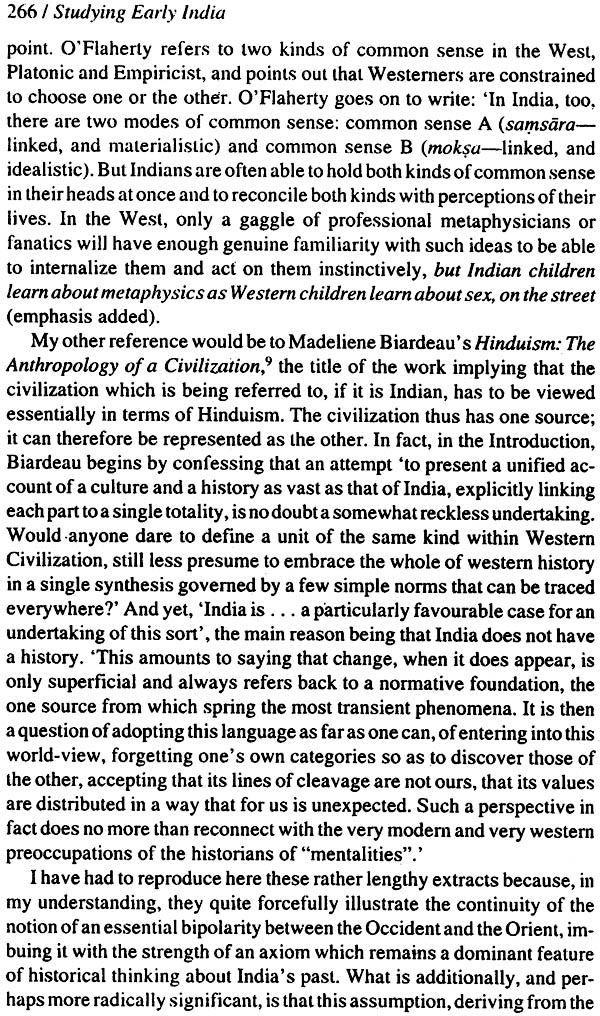
Studying Early India (Archaeology, Texts, and Historical Issues)
Book Specification
| Item Code: | IDI554 |
| Author: | Brajadulal Chattopadhyaya |
| Publisher: | Permanent Black |
| Language: | English |
| Edition: | 2011 |
| ISBN: | 9788178241432 |
| Pages: | 287 (Black & White Maps: 2) |
| Cover: | Paperback |
| Other Details | 8.2" X 5.2 |
| Weight | 290 gm |
Book Description
Preface
This compilation of articles, written on disparate themes and on different occasions, owes its publication to Rukun Advani. I have chosen only such articles for the collection as reflect somewhat my own position on what I would consider certain key areas in the study of early Indian history. They have been grouped into several sections to suggest what these areas are. In preparing the collection for publication I have not attempted to substantially revise the texts or update the references; alterations and additions in both have been keep to a minimum. My excuse is that I have not found adequate reasons to change my position on any of the issues discussed in the articles; my arguments remain the same today. On the other hand, if I were to write on the same issues now, I would perhaps attempt further studies and thus run the risk of not completing anything at all. The book is intended to suggest ways of looking at facets of early India, on the basis of material available from and on early India. Early India, admittedly, is an imprecise term, but search for a precise chronological definition is not the aim of this book.
I acknowledge with gratitude my debt to the publications in which many of the articles included here were originally published.
Back of the Book
This book comprises a set of essays on some of the key issues which continue to excite historians and scholars of early India.
It shows the profound impact of colonialism on the study of India's early past, the new methods and premises introduced into India by colonial studies, and the variety of departures from traditional, pre-colonial modes of history-writing. It goes on to fore: such as the integration of archaeology with narratives of early Indian history; of the trajectories of social change and social formation; of the historical position of ideology and its shifts; and of the ways of communicating knowledge of a past which is now increasingly under non-academic fundamentalist onslaughts.
With it diverse parts connected by strong threads of interest in the changing nature of history-writing on early India, this new book on the methodological changes that confront the historian o pre-colonial India will consolidate Professor
Chattopadhyaya's reputation as one of the foremost thinkers in his area of ancient and early medieval history.
Brajadulal Chattopadhyaya was educated at Calcutta and Cambridge. He retired as Professor of History, Jawaharlal Nehru University, New Delhi. His books include Coins and Currency Systems in South India (1977), the Making of Early Medieval India (1994) and Representing the Others Sanskrit Sources and the Muslims (1998).
| Preface | vi | |
| | 1 | |
| 1 | The Study of Early India | 3 |
| 2 | Indian Archaeology and the Epic Traditions | 29 |
| 3 | Transition to the Early Historical Phase in the Deccan: A Note | 39 |
| 4 | Geographical Perspectives, Culture Change and Linkages: some Reflections on Early Punjab | 48 |
| 5 | Urban Centres in Early Bengal: Archaeological Perspectives | 66 |
| | 103 | |
| 6 | The City Early India: Perspective from Texts | 105 |
| 7 | 'Autonomous Spaces' and the Authority of the State: The Contradiction and Its Resolution in theory and Practice in Early India | 135 |
| 8 | Historical Context of the Early Medieval Temples of North India | 153 |
| 9 | 'Reappearance' of the goddess or the Brahmanical mode of Appropriation: Some Early epigraphic Evidence Bearing on Goddess Cults | 172 |
| 10 | Other, or the Others? Varieties of difference in Indian Society at the Turn of the First Millennium and Their Historiographical Implications | 191 |
| | 215 | |
| 11 | Trends of Research on Ancient Indian Economic History | 217 |
| 12 | State and Economy in North India: fourth Century to Twelfth Century | 233 |
| 13 | Cultural Plurality, contending Memories and Concerns of comparative History: Historiography and Pedagogy in Contemporary India | 263 |
